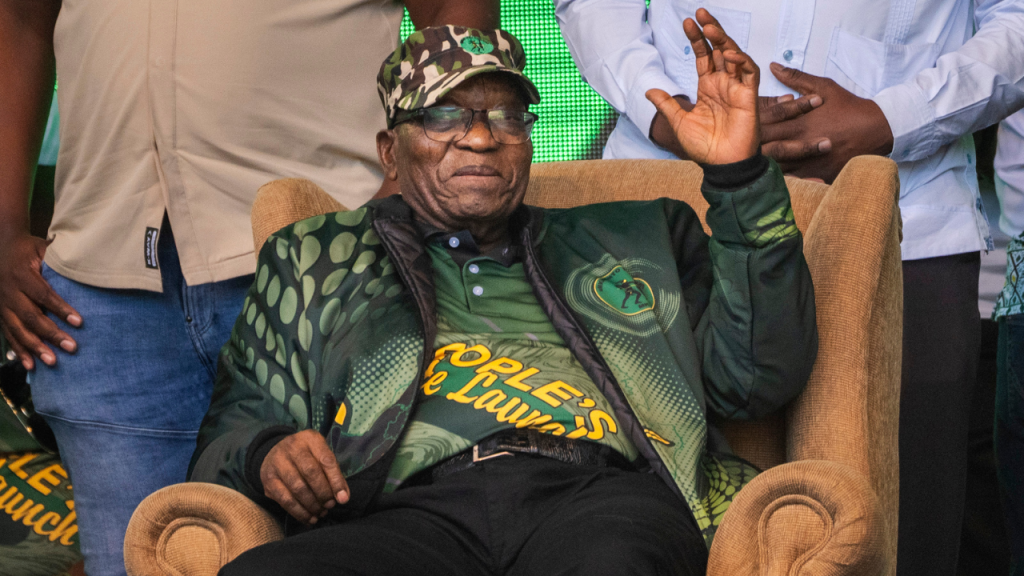Former South African President Jacob Zuma has been disqualified from standing in the national election due to a prior criminal conviction for contempt of court, resulting in a 15-month prison sentence. The Constitutional Court ruled that Zuma’s conviction triggered his disqualification under a constitutional provision that prohibits individuals sentenced to more than 12 months in prison without the option of a fine from running for office. This decision has raised political tensions ahead of the upcoming pivotal vote.
Zuma’s disqualification prevents him from running for Parliament for five years after completing his sentence, further complicating the political landscape in South Africa. The 82-year-old former president, who served from 2009-2018, resigned under a cloud of corruption allegations. Despite these challenges, Zuma made a return to politics last year with a new party and has been critical of the ruling African National Congress (ANC) party he once led.
The upcoming election is expected to be a tough test for the ANC, which has been in power for 30 years since the end of apartheid. There is a possibility that the ruling party could lose its majority for the first time, potentially leading to a national coalition government. Zuma’s new MK Party is anticipated to erode some of the ANC’s support due to his popularity in certain parts of the country. This development comes at a time when South Africa’s economy faces challenges and the political landscape is shifting.
Zuma’s disqualification from the election is part of a larger legal and political battle he is facing. In addition to the contempt conviction, Zuma is also facing corruption charges in a separate case, with a trial scheduled for next April. Despite maintaining his innocence, Zuma’s legal troubles raise questions about his political future and impact on South Africa’s democracy. The decision by the Constitutional Court to bar him from running for office further underscores the challenges facing the former president.
The ruling against Zuma has sparked debate and discussion across South Africa, as his disqualification has significant implications for the upcoming election and the country’s political landscape. Zuma’s return to politics and the formation of a new party have added complexity to an already polarizing environment, with the ANC facing internal and external pressures. As South Africa navigates these challenges, the integrity and fairness of the electoral process will be closely monitored, with implications for the country’s governance and stability in the coming years.
Overall, Jacob Zuma’s disqualification from the national election due to a prior criminal conviction has added another layer of complexity to South Africa’s political environment. As the country prepares for a pivotal vote that could reshape the political landscape, the decision by the Constitutional Court raises questions about democracy, rule of law, and the future of governance in South Africa. The legal and political battles surrounding Zuma highlight the ongoing challenges facing the country as it seeks to address corruption, promote transparency, and uphold the principles of democracy.













